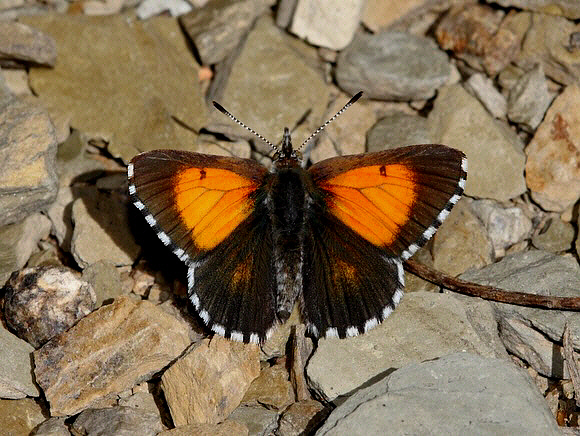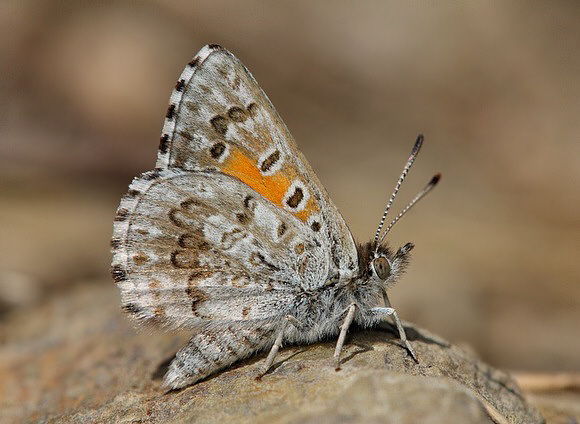
Introduction
The genus Lucia comprises of 10 known species, distributed variously throughout Indonesia, Papua and minor islands east of the Wallace Line. Only one species occurs in Australia.
Lucia limbaria is endemic to Australia and occurs in Queensland, New South Wales, South Australia and Victoria.
Habitats
This species inhabits open grassy and stony areas at elevations between about 50-500m.
Lifecycle
The eggs are pale green and laid in clusters of between 10-20 on the upper surface of a leaf of the foodplant. The larvae eat various Oxalis species including corniculatea ( Oxalidaceae ). When fully grown they are pale green with numerous thin dark lateral and dorsal stripes, and a black plate on the thorax and anal segment. They usually have Iridomyrmex ants in attendance, and rest inside ant chambers when not feeding. This way they are protected from predators and parasitoids, and in return for the protection gained the ants milk them for a sweet fluid secreted from a Newcomer’s gland on the caterpillar’s back. Pupation takes place within the ant nest.
Adult behaviour
Both sexes nectar at low growing Asteraceae and other flowers.

